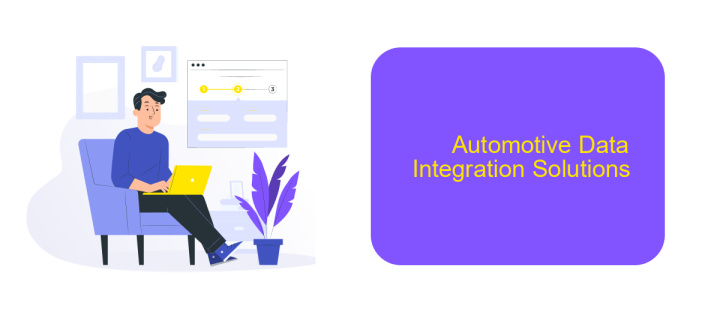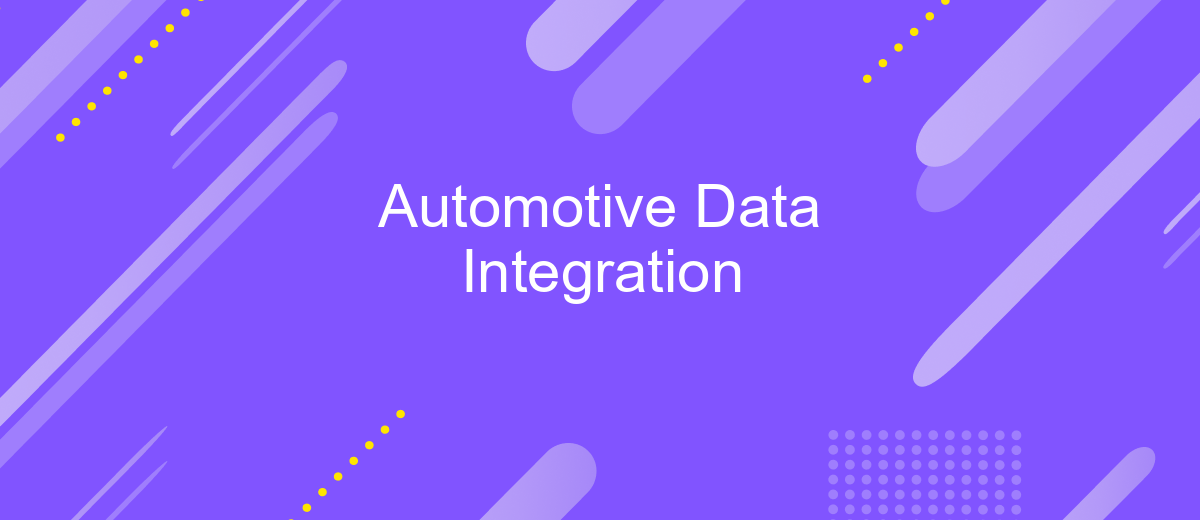Automotive Data Integration
In the rapidly evolving automotive industry, data integration has become a pivotal aspect of driving innovation and efficiency. By seamlessly merging data from various sources, automotive companies can enhance vehicle performance, improve safety features, and streamline operations. This article explores the significance of automotive data integration, its key benefits, and the technologies enabling this transformative process.
Executive Summary
Automotive Data Integration is transforming the way the automotive industry operates by enabling seamless data exchange between various systems and platforms. This integration facilitates better decision-making, enhances operational efficiency, and improves customer experiences. By leveraging advanced technologies, businesses can harness the full potential of their data to stay competitive in a rapidly evolving market.
- Streamlined data flow between manufacturing, sales, and service departments
- Improved accuracy and accessibility of real-time data
- Enhanced predictive maintenance and operational efficiency
- Better customer relationship management through integrated data insights
ApiX-Drive is a powerful tool that simplifies the process of integrating various automotive data sources. It allows businesses to connect different platforms effortlessly, ensuring data consistency and reliability. By automating data transfers and synchronizations, ApiX-Drive helps automotive companies reduce manual errors and save valuable time, ultimately driving better business outcomes.
Introduction

In the rapidly evolving automotive industry, data integration has become a cornerstone for enhancing operational efficiency, improving customer experiences, and driving innovation. The seamless integration of data from various sources, such as vehicle sensors, telematics, and customer databases, enables companies to make informed decisions and optimize their processes. As vehicles become increasingly connected, the volume and complexity of data generated continue to grow, necessitating robust solutions to integrate and manage this information effectively.
One such solution is ApiX-Drive, a versatile service that simplifies the process of data integration across multiple platforms. By automating data flows and eliminating manual input, ApiX-Drive allows automotive companies to streamline their operations and focus on core business activities. This service supports a wide range of applications and systems, ensuring that data is consistently accurate and up-to-date. As a result, businesses can leverage integrated data to enhance predictive maintenance, improve supply chain management, and deliver personalized customer experiences, ultimately driving growth and competitiveness in the automotive sector.
Data Integration Challenges

Integrating automotive data presents several challenges that can hinder its effective utilization. These challenges include data silos, incompatible data formats, and real-time data processing requirements. Overcoming these obstacles is crucial for ensuring seamless data flow and accurate analytics.
- Data Silos: Different departments and systems often store data in isolated silos, making it difficult to access and integrate information across the organization.
- Incompatible Data Formats: Automotive data comes in various formats, such as CSV, XML, and JSON, which can be challenging to standardize and integrate.
- Real-Time Data Processing: The automotive industry requires real-time data processing for applications like predictive maintenance and autonomous driving, necessitating robust integration solutions.
To address these challenges, businesses can utilize integration platforms like ApiX-Drive. This service simplifies the process of connecting disparate systems and automating data workflows, ensuring that data is consistently synchronized and readily available for analysis. By leveraging such tools, companies can enhance their data integration capabilities, leading to more informed decision-making and improved operational efficiency.
Automotive Data Integration Solutions

In the rapidly evolving automotive industry, data integration solutions are essential for ensuring seamless communication between various systems and platforms. These solutions enable the efficient collection, processing, and analysis of data from multiple sources, enhancing decision-making and operational efficiency.
One of the key challenges in automotive data integration is the need to synchronize data from disparate systems, including manufacturing, supply chain, and customer relationship management (CRM) platforms. Effective integration solutions address these challenges by providing robust tools and technologies that facilitate data flow across the entire ecosystem.
- Real-time data synchronization
- Scalable integration architecture
- Advanced data security measures
- Comprehensive API management
ApiX-Drive is a notable service that simplifies the integration process by offering a user-friendly interface for connecting various applications and automating workflows. By leveraging such solutions, automotive companies can achieve greater data consistency, reduce operational costs, and improve overall performance. The result is a more agile and data-driven organization capable of responding swiftly to market changes and customer demands.
- Automate the work of an online store or landing
- Empower through integration
- Don't spend money on programmers and integrators
- Save time by automating routine tasks
Conclusion
Automotive data integration is pivotal in enhancing operational efficiency, improving customer experiences, and driving innovation within the automotive industry. By seamlessly connecting various data sources, companies can gain comprehensive insights, streamline processes, and make data-driven decisions. The integration of data from telematics, manufacturing, sales, and customer service helps in creating a unified and cohesive ecosystem, enabling stakeholders to collaborate effectively and respond to market demands swiftly.
Services like ApiX-Drive play a crucial role in facilitating these integrations by providing a user-friendly platform for connecting diverse APIs and automating workflows. With ApiX-Drive, businesses can easily set up and manage integrations without extensive technical expertise, ensuring that data flows seamlessly across different systems. This not only reduces manual effort and errors but also accelerates the deployment of new solutions. As the automotive industry continues to evolve, leveraging robust data integration tools will be essential for maintaining competitiveness and achieving long-term success.
FAQ
What is Automotive Data Integration?
Why is Automotive Data Integration important?
What types of data can be integrated in the automotive industry?
How can I automate the integration of automotive data?
What challenges might I face with Automotive Data Integration?
Do you want to achieve your goals in business, career and life faster and better? Do it with ApiX-Drive – a tool that will remove a significant part of the routine from workflows and free up additional time to achieve your goals. Test the capabilities of Apix-Drive for free – see for yourself the effectiveness of the tool.


